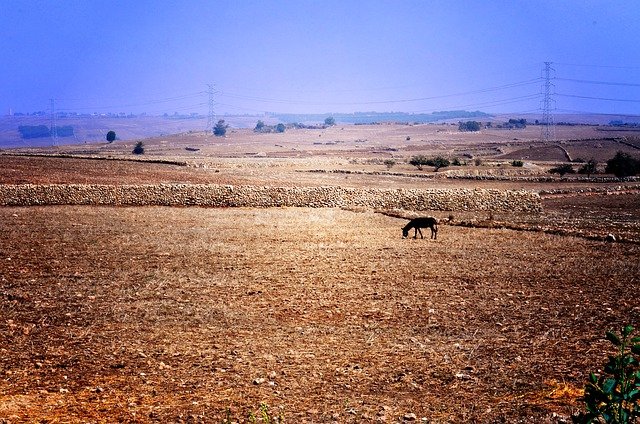Land governance is strongly related to peace , it is linked to livelihood, identity and power. Good land governance, including the key aspects of mediating and resolving land-related disputes and the protection of the housing, land and property rights of all, leaving no-one behind, and are cornerstones for peace. In the Arab region, competition and conflict over land and land-based resources has been dramatically intensifying under the growing pressures of climate change, population growth and movements, increased food insecurity, and changing land use.
In the region, 50 million people are in need of humanitarian assistance, including over 15 million forcibly displaced (UNHCR2019). Displacement has an increasingly urban face, with 61 percent of the refugee population living in urban centres (globally, 2018), a trend that is mirrored in the Arab region. The competition around land and land-based resources is a very common root cause of armed conflicts, instability and social unrest which leads to a large scale land-related human rights abuses, such as forced evictions and mass displacement. In some cases, there are unplanned consequences of the violence and destruction occurred during the conflicts. In other cases, specific groups, communities and families are intentionally pushed out of their land and houses to make space for the affiliated combatants to pay back the support provided, secure political support and strengthen affiliation. In such case, land rights violations are both the result of armed conflict and also fueling armed conflicts.
As a result the protection of housing, land and property (HLP) rights of displaced populations and returning refugees is very important because it is the prerequisite for the protection of many other human rights, such as health, protection from violence and GBV, access to adequate housing, among others. When displaced people have HLP rights, they are better able to start rebuilding their lives without the fear of being pushed out again and again from their homes.
The protection of HLP rights of displaced people and returning refugees also has longer term peace and stability implications. It is necessary to renew or establish a new social pact between the citizens and the state. This has an important role in strengthening the role of institutions and stabilizing societies emerging from conflict. Ensuring sustainable and long-lasting peace requires addressing historical injustices in the access to land and land-based resources, providing adequate and affordable housing for all, and restitution and reconstruction of houses are also critical elements of peacebuilding in the region. Further, including land issues in conflict analyses and adequately addressing them in peace agreements and as part of recovery and reconstruction efforts.
It's important to mention that more and more peace negotiation processes take the land dimension as a critical factor to longer-term peace and stability, but unfortunately not many UN agencies and international partners have sufficient technical capacity to support the adequate inclusion of the land and land rights’ dimension into peace processes.
UN-Habitat will continue, through its work on land in conflict-affected and fragile contexts, supporting peace, stability and crisis responses in the Arab region, building on its extensive expertise gained in Iraq, Syria, Yemen, Lebanon, and Palestine and on the global normative work developed, such as the UN Secretary General Guidance Note “The United Nations and Land and Conflict’ (2019). The Arab Land Conference is an important opportunity for diverse land sector partners and experts to share experiences and lessons learnt from their work on land governance in conflict-affected contexts. The Conference brings together humanitarian and development actors, government officials and civil society, academia and private sector. This is an unusual mix that will facilitate the exchange of ideas on why good land governance is important for development, but also for peacebuilding and fostering equitable and stable societies in the Arab region. A couple of technical sessions, a round table discussion and a masterclass will look at the different interrelated aspects of addressing land governance and housing, land and property rights as important contributions to peace and stability in the region
A high level session on ‘Land Management in Times of Crisis’ will see a set of panelists and decision makers debating the relation between land governance and the most common stress-factors that are challenging the region‘s socio-economic development and increasing its fragility to conflicts. Conflicts, climate change and pandemics will be at the centre of the discussion, increasing the understanding and the visibility of the relation between land governance, peace and stability.

